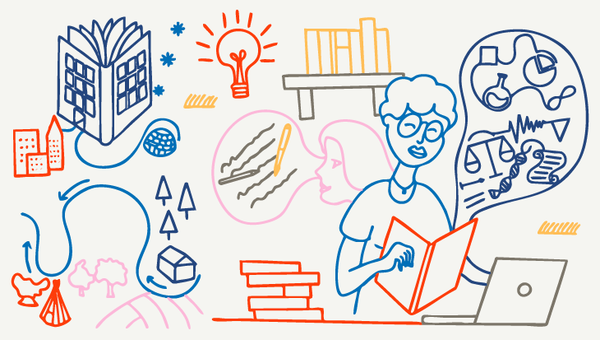UN Joint Programme for Gender Equality - Phase 2
summary
Three UN agencies – UNDP, UN Women and UNFPA – with funds from the Government of Sweden, pool their resources, experience, expertise and assets to address the challenges of gender equality in Georgia. The Joint UN Programme for Gender Equality focuses on the three main areas: (1) Women’s political and economic empowerment, (2) Eliminating violence against women, and (3) Realisation of sexual and reproductive rights of the population. The second phase of the programme was implemented from 2015 through 2023.
what we do
UNDP's work focused on enhancing women's political and economic empowerment through:
- Policy Advice: We advocated for streamlining gender equality in the national legislation and policies; assisted in developing and updating strategic documents, including national action plans; supported evidence-based policy dialogue across the Georgian society.
- Strengthening National Systems: We promoted coordination and implementation of innovative policies and plans related to gender equality, including for political and economic empowerment, SRH&RR, prevention and response to violence against women and girls, as well as supporting the development and institutionalisation of monitoring mechanisms of implementation.
- Strengthening Public Advocacy: We worked with civil society and local communities in Georgia to enhance rights-holders' capacities and mobilise participatory advocacy platforms.
- Bridging the Digital Gender Gap: With additional resources through the UNDP Rapid Financing Facility, in response to the impacts of the COVID-19 pandemic, we promoted the digital inclusion of women and vulnerable groups through promoting outreach of digital public services and the development of online job coaching platforms.
results
- The proportion of women in the Parliament of Georgia increased from 6 percent in 2008 to 20.6 percent in 2020.
- In July 2020 Parliament of Georgia adopted the Electoral Code Amendment. Part of this amendment – the women's quota mechanism includes 25 percent gender quotas in the proportional party lists for the Parliament and a 50 percent quota for local administrations (sakrebulo).
- The proportion of women in local councils increased from 11.8 percent to 13.4 percent after the municipal elections in 2017. The Women Councillors’ Forum was established in 2013 to increase women’s role in local governance.
- In September 2020, the Georgian Parliament adopted the Labour Code reform package, which introduced independent labour inspection and a wide range of gender-sensitive principles.
- The Gender Equality National Action Plan for 2018-2020 was adopted setting the milestones for the country in achieving gender equality in different areas of political, social, and economic life.
- UNDP, in cooperation with UNFPA, conducted an innovative gender perceptions study "Men, Women and Gender Relations in Georgia: Public Perceptions and Attitudes". The study shows progress in gender perceptions with regards to women’s role in the workplace and decision-making.
- More than 3000 rural women received vocational training in different fields to promote their participation in economic activities and increase local household income. Through vocational education, UNDP strives to break the stereotypes of traditionally “men’s” and “women’s” professions.
- 26 Women Initiative Groups in 11 municipalities in Samegrelo and Kakheti have been supported to implement 56 microgrants projects. These grassroots women’s organisations also successfully lobbied to include locally-identified issues in municipal budgets. In 2016-2020, 220 problems have been considered in municipal budgets, totalling GEL 22,615,472.
covid-19 response
The UN Joint Programme for Gender Equality responded to COVID-19 with the following activities:
- Provided support to partner VET colleges in adapting to the distance learning mode. More than 900 participants (most of them women) took part in distance vocational training.
- Provided knowledge building for rural women in partnerships with the Association of Women Farmers. More than 400 beneficiaries gained skills in small-scale farming and agritourism and learned about opportunities to access state funding.
- Provided rapid response to meet the urgent needs of the LGBTQI+ community.
- Supported 31 vulnerable women through business micro-grants to develop services found to be lacking during the pandemic in local communities.
- In cooperation with the Government of Georgia, UNDP conducted a study assessing the gender dimension of the impacts of COVID-19.
- In addition, within a sub-project "Improving access to digital services for gender-equal recovery", UNDP mobilised funds through the Rapid Financing Facility to respond to socio-economic impacts related to the COVID-19 pandemic. UNDP's effort focuses on the comprehensive promotion of digital technologies and online public services to ensure a gender-inclusive recovery from the crisis.
Contact information
Contact Persons
Ia Dadunashvili
Project Manager
Ia.dadunashvili@undp.org
Gigi Bregadze
UNDP Democratic Governance Team Leader
gigi.bregadze@undp.org
Related Materials
Impact
Explore more

 Locations
Locations











